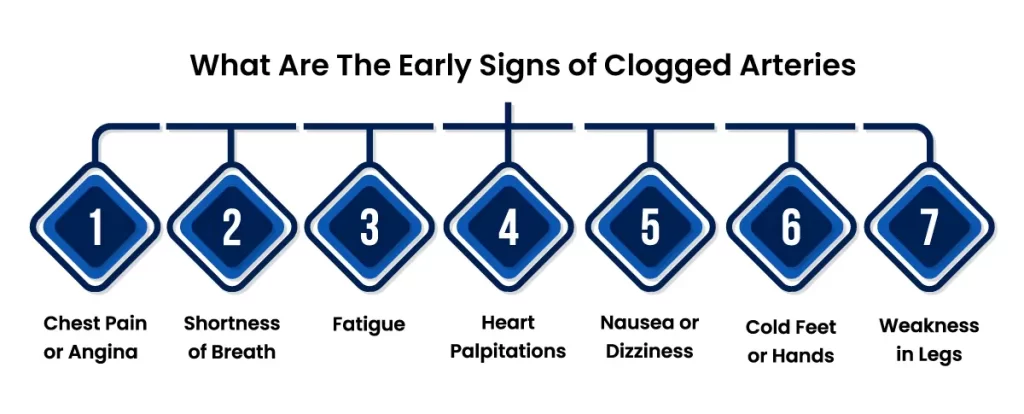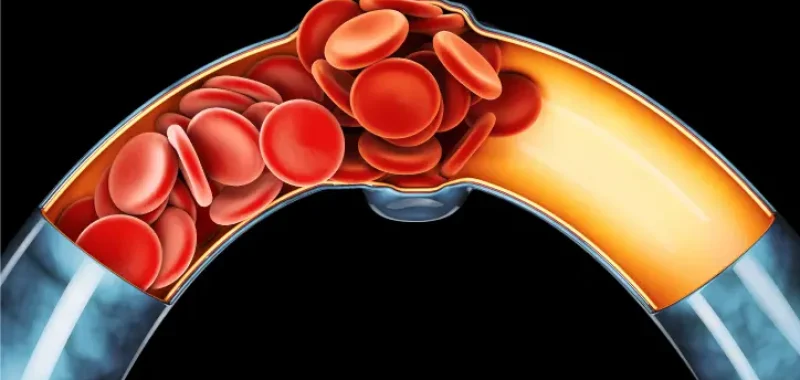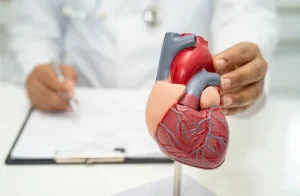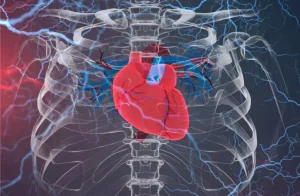Clogged arteries can be silent but deadly, often showing subtle signs before leading to serious cardiovascular problems. Many people are unaware that the warning signs are already present, quietly affecting their health day by day.
It’s crucial to recognize these indicators early, as they are often the body’s only way of signaling the urgent need for medical attention. By staying informed and vigilant, you can take proactive steps to prevent the severe consequences of arterial blockage.
Why should you be concerned about silent signs? Because clogged arteries do not always manifest through dramatic symptoms. Instead, they may reveal themselves in ways that are easy to dismiss as normal aches or fatigue.
Understanding these silent signals could be the key to preventing heart attacks, strokes, and other life-threatening conditions. Let’s explore what these signs are and why you should never ignore them.
What Do We Mean By Clogged Arteries And Why Do These Happen?
Clogged arteries, medically known as atherosclerosis, occur when fatty deposits, cholesterol, and other substances build up in the walls of arteries. This buildup, often referred to as plaque, can reduce or block blood flow through the arteries, which is essential for delivering oxygen-rich blood throughout the body.
Over time, these plaques can harden and narrow the arteries, significantly increasing the risk of cardiovascular diseases, including heart attacks and strokes.
Several factors contribute to the development of clogged arteries. Lifestyle choices play a significant role; a diet high in saturated fats, trans fats, and cholesterol can increase blood cholesterol levels, contributing to plaque formation.
Physical inactivity, obesity, and smoking are also major risk factors that can damage the inner lining of the arteries and promote plaque buildup.
What Are The Early Signs of Clogged Arteries
Recognizing the early signs of clogged arteries is crucial for preventing more severe cardiovascular issues. Here are some key indicators that might suggest the presence of atherosclerosis:

- Chest Pain or Angina: One of the most common signs of clogged arteries is chest pain or discomfort, often felt when the heart muscle doesn’t get enough oxygen-rich blood. This pain might feel like pressure or a squeezing sensation in the chest, and it can also spread to the arms, neck, jaw, or back.
- Shortness of Breath: If the heart can’t pump enough blood due to clogged arteries, it may lead to breathlessness. This symptom often occurs during physical activities but might happen during rest in more severe cases.
- Fatigue: As arteries narrow and limit blood flow, you may find yourself feeling unusually tired, especially after activities that used to be easy.
- Heart Palpitations: Blocked arteries can lead to irregular heartbeats or the feeling that your heart is beating too hard or too fast, even if you’re sitting still or moving slowly.
- Nausea or Dizziness: Insufficient blood flow can affect the balance centers in your brain, leading to episodes of dizziness or fainting. Nausea can also occur, reflecting the body’s stress from reduced blood circulation.
- Cold Feet or Hands: When arteries that supply blood to your limbs are blocked, it can lead to decreased circulation to your extremities, making them feel unusually cold.
- Weakness in Legs: Walking or climbing stairs might become difficult due to the reduced blood flow from narrowed or blocked arteries in the legs.
Identifying these symptoms early can be lifesaving, especially since atherosclerosis can progress for years without noticeable symptoms. If you experience any of these signs, it’s important to consult a healthcare provider for evaluation and possible intervention.
Who’s at the Risk of Clogged Arteries?
The risk of developing clogged arteries, or atherosclerosis, is influenced by various factors, including lifestyle choices, genetic predispositions, and certain medical conditions. Individuals who consume diets high in saturated fats, trans fats, cholesterol, and processed sugars are particularly vulnerable, as these nutrients can elevate blood cholesterol levels and contribute to arterial plaque buildup.
Smoking is another significant risk factor; it damages the inner lining of arteries, raises blood pressure, diminishes blood’s oxygen-carrying capacity, and makes blood more prone to clotting. Similarly, high blood pressure can cause arteries to harden and thicken, speeding up the accumulation of fatty deposits.
Diabetes exacerbates the risk substantially. High blood sugar levels are notorious for damaging blood vessels and accelerating the plaque buildup process. Physical inactivity also contributes to this issue by fostering conditions like obesity, high blood pressure, and diabetes, all of which are detrimental to arterial health.
Furthermore, obesity or being overweight directly impacts cardiovascular health. Excess body weight is associated with elevated blood pressure, high cholesterol levels, and a greater likelihood of developing diabetes. On a genetic level, individuals with a family history of heart disease are at a heightened risk, suggesting that genetics can significantly influence cardiovascular health.
Age is another critical factor; as people age, their arteries may stiffen and accumulate plaque over time. Gender also plays a role—men generally face a higher risk at a younger age, while women’s risk increases after menopause due to a reduction in protective estrogen levels.
What are the Signs of Clogged Carotid Arteries?
Clogged carotid arteries, which are the main blood vessels that supply blood to the brain, can lead to serious health issues such as strokes. Recognizing the signs of blockages in these arteries is critical for preventing potentially life-threatening complications. Here are some key symptoms:
- Sudden numbness or weakness
- Difficulty speaking or understanding speech
- Vision problems
- Dizziness or loss of balance
- Sudden, severe headache
- Transient ischemic attack (TIA)
What are the signs that You Have a Clogged Artery in Legs?
Clogged arteries in the legs, a condition known as peripheral artery disease (PAD), can lead to significant discomfort and serious complications if not addressed. Recognizing the warning signs of clogged arteries in legs is essential for timely medical intervention and to prevent further vascular damage. Here are the primary symptoms to watch for:
Claudication (Leg Pain When Walking): One of the most common warning signs of clogged arteries in the legs is pain, cramping, or heaviness in the legs that occurs during activities like walking or climbing stairs and typically subsides with rest. This pain is due to inadequate blood flow to the muscles during exertion.
Changes in Leg Color: Reduced blood flow can cause noticeable changes in the color of your legs. When sitting, they may appear pale or bluish, a condition referred to as cyanosis, indicating poor circulation.
Coldness in Lower Leg or Foot: One leg or foot may feel colder than the other, particularly noticeable when comparing the two sides. This is due to decreased blood flow to the affected limb.
Sores or Wounds That Heal Slowly: Restricted circulation in the legs means less oxygen and fewer nutrients reach the skin, which can impede the healing process. Any cuts, sores, or ulcers on the legs that do not heal as expected should be taken seriously.
Pulse Changes in the Legs and Feet: A weakened or absent pulse in the feet can be a sign of blocked arteries in the legs. Medical professionals often check for pulses in specific areas to diagnose PAD.
How a Doctor is going to Treat your Clogged Arteries?
Treating clogged arteries is crucial to prevent more serious complications like heart attacks or strokes. The approach a doctor takes can vary based on the severity of the blockage, the specific arteries affected, and the overall health of the patient. Here are some common treatments for clogged arteries:
Lifestyle Changes
This is often the first recommendation for those with mild arterial blockage. Changes may include adopting a heart-healthy diet low in saturated fats and cholesterol, increasing physical activity, quitting smoking, and managing stress. These changes can help slow the progression of plaque buildup.
Medications
Various medications can be prescribed to help manage clogged arteries:
- Statins to lower cholesterol levels.
- Blood pressure medications to reduce hypertension and relieve stress on the arteries.
- Antiplatelet drugs such as aspirin to prevent platelets from clumping together and forming clots.
- Anticoagulants to prevent existing clots from becoming larger.
Angioplasty and Stent Placement
For moderate to severe blockages, a doctor might recommend an angioplasty. This procedure involves threading a thin tube through a blood vessel to the site of the blockage. A small balloon on the tube is inflated to reopen the artery, and a stent (a tiny wire mesh tube) is often placed to keep the artery open.
Atherectomy
In some cases, where the plaque is very hard or difficult to treat with angioplasty, an atherectomy may be performed. This involves using a catheter with a sharp blade on its end to remove the plaque from the artery walls.
Bypass Surgery
In severe cases, especially when multiple arteries are blocked, coronary artery bypass grafting (CABG) may be necessary. This surgery involves taking a vessel from another part of the body and using it to reroute blood around the blocked artery.
Carotid Endarterectomy
Specifically for clogged arteries in the neck, this surgery involves opening the carotid artery and removing the plaque that is narrowing it. This is particularly used to prevent future strokes.
Endovascular Surgery
Similar to angioplasty, this involves various techniques to treat the arteries from within, using catheters, stents, and sometimes, balloons.
Bottom Line
Clogged arteries, whether silent or symptomatic, pose a significant risk to your overall health, potentially leading to severe cardiovascular events like heart attacks and strokes. Recognizing the warning signs across different parts of the body—from the chest and neck to the legs—is crucial for timely intervention and management. Early detection, lifestyle adjustments, and proper medical treatment can significantly reduce the risks associated with this condition.
If you are experiencing any symptoms or have risk factors for clogged arteries, it is essential to seek professional medical advice. Atlantic Cardiovascular offers a comprehensive approach to diagnosing and treating arterial blockages, utilizing state-of-the-art technology and personalized care plans. Schedule a consultation with Atlantic Cardiovascular to ensure your heart and arteries remain healthy and well-functioning. Take the first step towards a healthier future today.






